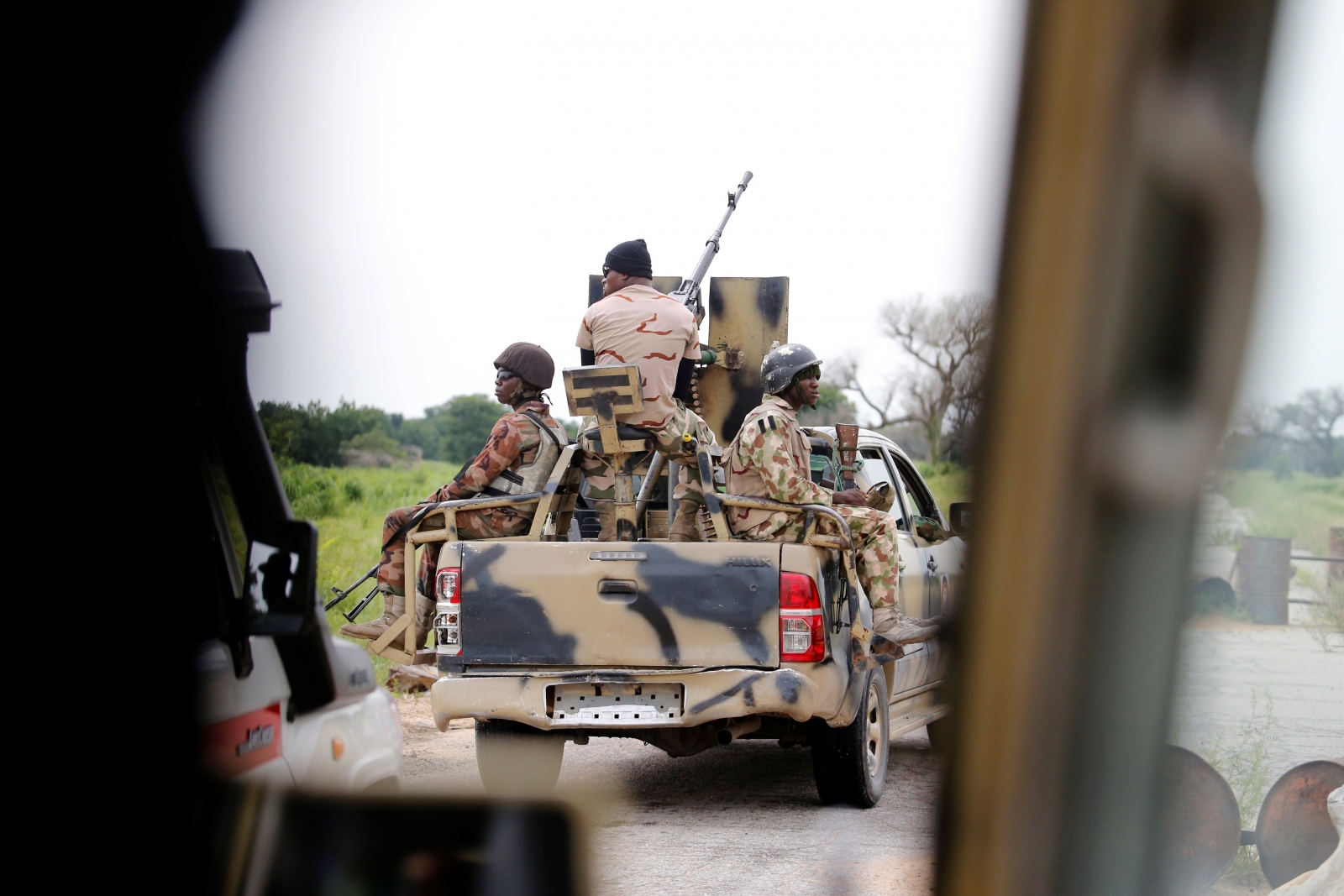Offensive has scored Some successes, but intelligence warns insurgents fleeing to Taraba state.

The Boko Haram terror group has waged a seven-year-long insurgency in north-eastern Nigeria, killing thousands of people. The conflict, which first erupted in 2009, has also spilled over into neighbouring countries, sparking a grave humanitarian crisis in the Lake Chad basin region, where 2.6 million people are currently displaced.
In addition to its own military operation Lafiya Dole against the insurgents, Nigeria is now leading a regional offensive – consisting of 8,700 troops from Nigeria, Niger, Chad, Cameroon and Benin – to tackle Boko Haram.
The offensive has scored some successes, such as the recapture of key territories and the release of thousands of civilians held captive by the group.
The Nigerian security forces are also succeeding in foiling most of the attacks planned by Boko Haram, renowned for kidnapping civilians and forcing them to carry out suicide-bombing missions.
However, an unwanted consequence of the military offensive in Nigeria's north-east is the possible relocation of the militants to other states in the country.
Earlier this week, Shehu Saulawa, Taraba state director for Nigeria's state security service said the terrorists were fleeing into the central-eastern state, seeking a shelter from the military offensive. Saulawa added security operatives had trapped and arrested some of the terrorists.
Root causes of terrorism
Although Nigeria's President Muhammadu Buhari declared a technical victory over the fight against the insurgents in December 2105, Boko Haram still carries out attacks, with security experts warning that underlying issues such as disenfranchisement, poverty and strong links with Islamic State (Isis) would continue to pose major threats to stability in the region.
David Otto, counterterrorism expert at UK-based TGS Intelligence Consultants, believes "a soft dialogue strategy" is necessary to end the crisis.
"Boko Haram will have no problems penetrating the central-south, although it could be more difficult to find a complex hiding place like in the Sambisa Forest," he said, referring to Boko Haram's last known stronghold.
"On one hand, the military offensive shows a mounting pressure from the government and security services, and on the other hand it spreads the movement beyond the confined zone of north-east, making it more difficult to deal with the group strategically.
"The window of opportunity and dialogue that led to the release of the 21 Chibok girls should be extended to include a dialogue for disengagement," Otto, who is also a senior adviser for Global Risk International, continued. "The security system in place is insufficient to stop a spill-over to the central. These groups know the terrain and also understand the weaknesses of the security architecture."
In September, Nigeria launched an "inter-ministerial taskforce" to tackle the humanitarian crisis in the northeast of the country, where 65,000 people are at risk of famine.
"Nigeria has been providing food support, reintegrated healthcare, shelter, psycho-social support, and access to water and sanitation amenities for those in need. We are also engaging highly respected community and religious leaders to discourage vulnerable youth from being radicalised," Buhari said.
SOURCE:ibtimes.co.uk
No comments:
Post a Comment
Comment Here: